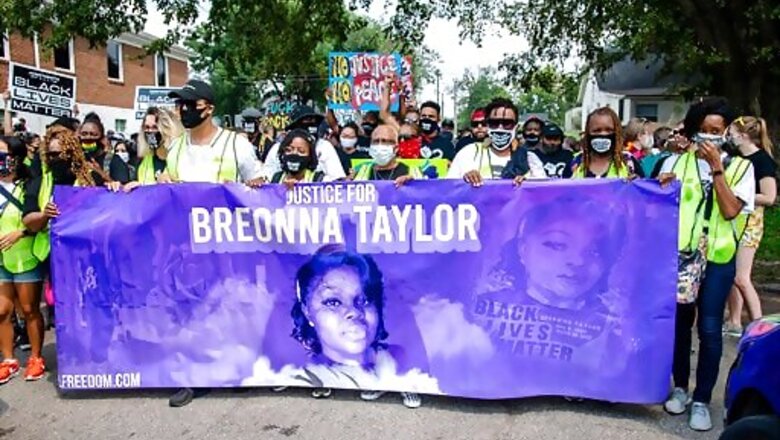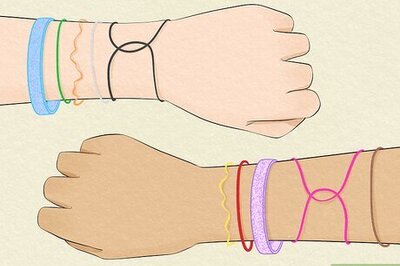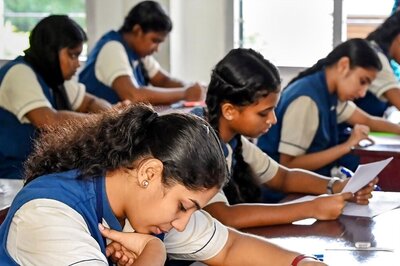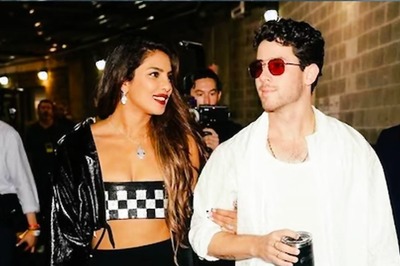
views
LOUISVILLE, Ky.: Here is a timeline of events that began with the death of Breonna Taylor, a Black woman whose killing by police in her home in Kentucky has encouraged a national reckoning on race:
March 13: Officers serving a narcotics warrant fatally shoot Taylor in her home in Louisville, Kentucky.
March 13, hours later: Police announce the arrest of Kenneth Walker in the wounding of an officer during an exchange of gunfire; Taylor is left unidentified at the news conference, described as an unresponsive woman who was later pronounced dead.
March, April: The shooting stays out of the headlines as the COVID-19 pandemic spreads in the U.S.
April 27, Taylor’s family files wrongful death lawsuit against police department and city, challenging the police narrative.
May 13: Top Louisville prosecutor Tom Wine recuses himself from reviewing police investigation, Attorney General Daniel Cameron named as special prosecutor.
May 22: Prosecutors announce they will drop attempted murder charges against Walker, who shot at officers in his girlfriend’s home.
May 28: Walker’s anguished 911 call is released, three days after the death of George Floyd at the hands of police in Minnesota, sparking large protests in Louisville.
May 29: Mayor Greg Fischer suspends use of no-knock warrants by Louisville police.
June 1: Fischer fires Police Chief Steve Conrad after officers failed to turn on body cameras in shooting of barbecue cook David McAtee during protests in Louisville.
June 11: Louisville Metro Council unanimously passes Breonnas Law which bans use of no knock warrants.
June 14: Pop star Beyonc writes Attorney General Daniel Cameron, urging him to charge police officers.
June 23: Officer Brett Hankison, one of 3 officers who fired shots the night of Taylor’s death, is fired for blindly firing into Taylors apartment.
June 25: Celebrities join hundreds of demonstrators outside state Capitol calling on Cameron to charge officers.
June 28: Photographer Tyler Gerth is fatally shot at site of ongoing protests in downtown Louisville.
July 14: Protesters are arrested for demonstrating on Camerons front lawn.
Aug. 12: Taylors mother, Tamika Palmer, meets with Cameron.
Sept. 5: Hundreds peacefully protest outside Kentucky Derby, urging Cameron to criminally charge the officers.
Sept. 7: Fischer names Yvette Gentry, first Black woman to lead Louisville Police department, as interim chief beginning Oct. 1.
Sept. 9: Cameron is included on President Donald Trump’s shortlist of Supreme Court candidates.
Sept. 15: City announces civil settlement providing Taylors family with $12 million and promising police reforms.
Sept. 22: Louisville police set up blockades downtown in anticipation of Camerons announcement.
Disclaimer: This post has been auto-published from an agency feed without any modifications to the text and has not been reviewed by an editor


















Comments
0 comment